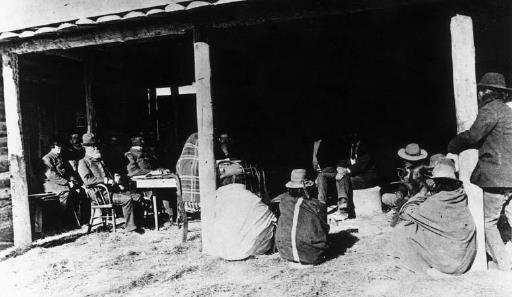The Waite Court (1874–88)Criminal Justice |
In what decision did the Waite Court rule that American federal courts could not assert jurisdiction over a Sioux Indian accused of murder? |
The Waite Court unanimously ruled 9–0 in Ex Parte Crow Dog (1883) that a federal territorial court did not have jurisdiction over a Sioux Indian who allegedly killed another Indian on tribal lands. Crow Dog allegedly killed Spotted Tail and federal officials sought the death penalty against Crow Dog for his murderous act. Crow Dog was tried, convicted and sentenced to death. However, Sioux tribal law prohibited the death penalty but provided that Crow Dog would have to support the surviving family members of Spotted Tail.
The Court concluded that the federal court did not have jurisdiction; instead, the Sioux tribe had jurisdiction over the matter. The Court said that the tribe had the right to “the maintenance of order and peace among their own members by the administration of their own laws and customs.”
The decision caused much outrage and led to the Indian Major Crimes Act in 1885, giving federal courts jurisdiction over murders on tribal lands.
In strong language, Justice Stanley Matthews wrote:
“It is a case of life and death. It is a case where, against an express exception in the law itself, that law, by argument and inference only, is sought to be extended over aliens and strangers; over the members of a community, separated by race, by tradition, by the instincts of a free though savage life, from the authority and power which seeks to impose upon them the restraints of an external and unknown code, and to subject them to the responsibilities of civil conduct, according to rules and penalties of which they could have no previous warning; which judges them by a standard made by others, and not for them, which takes no account of the conditions which should except them from its exactions, and makes no allowance for their inability to understand it. It tries them not by their peers, nor by the customs of their people, nor the law of their land, but by superiors of a different race, according to the law of a social state of which they have an imperfect conception, and which is opposed to the traditions of their history, to the habits of their lives, to the strongest prejudices of their savage nature; one which measures the red man’s revenge by the maxims of the white man’s morality.”

